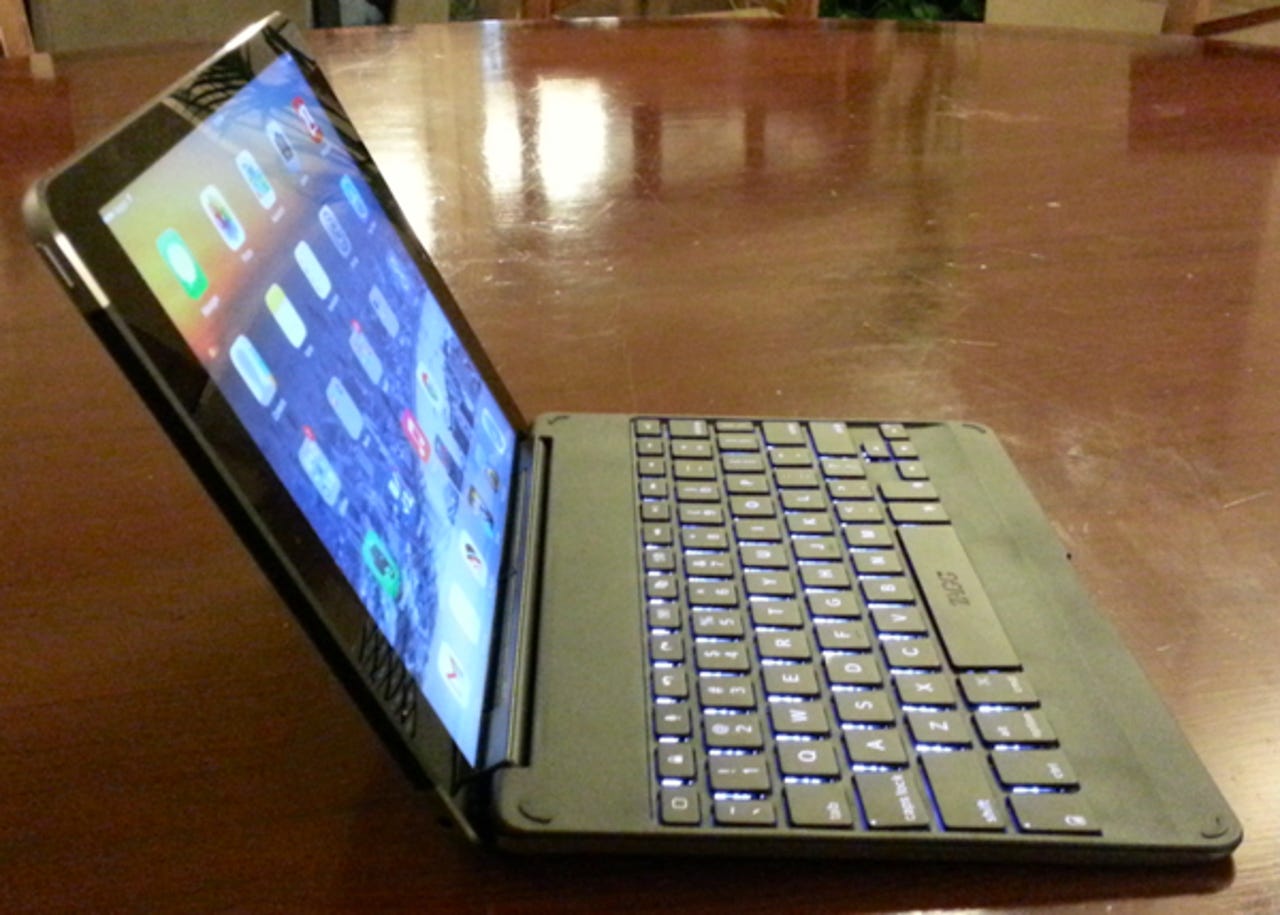Key to using a tablet for work: Don't force it

The thought of replacing a bulky laptop with a thin, light tablet is compelling. That's the impression I get from the volume of email I get from readers who want to do it. I've written about using a tablet for my work and many reach out to me asking how they can do the same.
Unfortunately, most don't like the answer I give them. They are usually looking for me to affirm the direction they are leaning, to swap a tablet for their laptop. That's not something I can usually do.
I understand why the thought of using a tablet for work is so attractive. I went through the same thought process a few years ago and don't regret using a tablet for my work as much as I do. It's far more portable than any laptop and I can do what I need without compromise.
While a tablet-based methodology might end up being better than the old laptop method, for most switching is not worth the risk.
The last two words in the preceding paragraph are very important: without compromise. For those already working with a laptop, switching to a tablet must be done with no issues or regrets will soon set in.
If someone already has a good work setup, the only reason to change is to make it better. Whether that means the tool kit is smaller, lighter, or gets better battery life depends on the needs of the individual. Change for change's sake or because it's cool is not reason enough to disrupt the way work gets done.
While a tablet-based methodology might end up being better than the old laptop method, for most switching is not worth the risk. We all must do the best we can at our jobs and radically changing the way we approach it can rock the boat.
I tell most who ask me if they should try a tablet: it depends. If you already have a tablet, brand or platform is unimportant, then it's worth a try. Take the tablet and leave the laptop at home for a couple of days and see how it goes. Better yet, bring the laptop in addition to the tablet just in case the tablet doesn't fill in adequately.
If everything goes smoothly then you're home free and it probably won't hurt to use the tablet for a longer period. If it doesn't go smoothly then you should rethink things. Even if you get all the work done it might not be worth the device switch if it requires workarounds to get things accomplished as well as they would using the laptop. Why jump through hoops to do particular tasks on a tablet if you can do them easily on a laptop?
I don't ever recommend trying to use a tablet for work if it means buying one. That ups the risk significantly and many would end up trying everything to make it work given the financial outlay for the tablet. That's trying to force it to work, and that's rarely a good approach.
Featured
Having to do things in a roundabout way just to use the tablet is not something that most would be happy doing long-term. It makes little sense to do that just so you can say you use a tablet instead of a laptop. Always use what works best and both you and your employer will be happier.
Once more, with feeling: don't use a tablet if you have to force your way through getting the stuff done you need to do. It's not worth it in the long run. Use what makes the most sense, not what is cool.
I realize I am fortunate that I can use a tablet for my work, and I understand the draw for others. Even so, I wouldn't do it if it meant working around shortcomings using a tablet. I would just use my laptop. Getting work done is the most important thing, not how it gets done.
See related:
